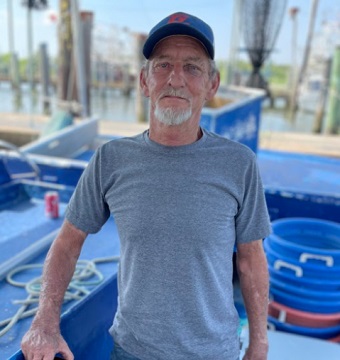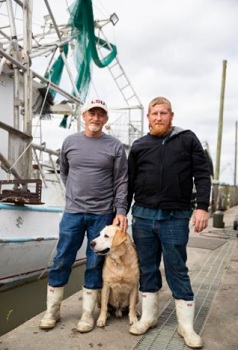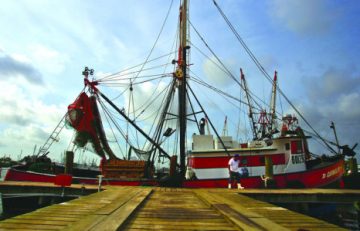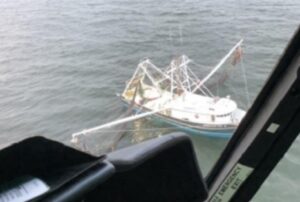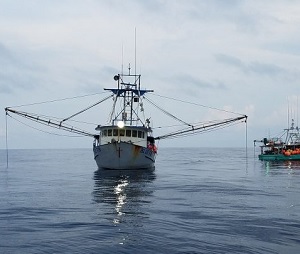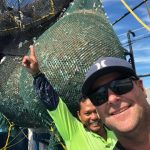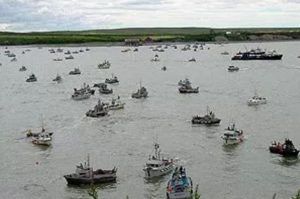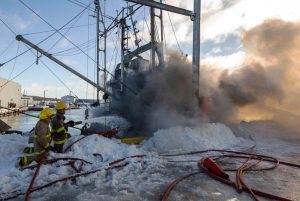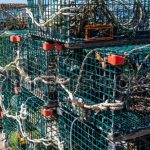Tag Archives: Acy Cooper
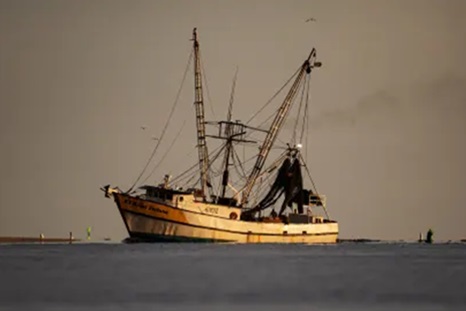
Shrimp scurry from Hurricane Francine storm surge, filling fishing nets of struggling shrimpers
Hurricane Francine closed in on Terrebonne and Lafourche with 100 mph winds Sept. 11. As the storm pushed tidal waters toward land, shrimp scurried for inland waters. Shrimpers took advantage of the migration, dropping nets and pulling in thousands of pounds in a short timeframe. The hauls were great, but the low prices meant what would have been a drop in the bucket, instead fell in an empty pail. “We did good last night and the night before,” Jonathan Guidry said. “The shrimp was jumpin’ all over. They had some land nets on side of us. They was startin’ to pick up every 10 minutes, and they had maybe 120 to 130 pounds every 10 to 30 minutes.” Guidry said with all the flood gates closed, he thinks the shrimp were funneled through the Bubba Dove lock gate as they sought safety from the storm. more, >>CLICK TO READ<< 12:11
Senator John Kennedy works to bring Louisiana shrimping industry back to life
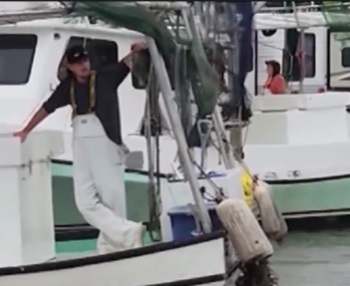 The $36 million purchase from the United States Department of Agriculture (USDA) of the Louisiana shrimping industry was done to help alleviate some of the issues the industry has been struggling with for years. United States Senator John Kennedy (R- La) says although he applauds the purchase, more still needs to be done to save the industry. Acy Cooper with the Louisiana Shrimp Association agrees with the senator the purchase does help, but additional assistance is needed to save one of Louisiana’s biggest industries. Video, more, >>click to read<<12:41
The $36 million purchase from the United States Department of Agriculture (USDA) of the Louisiana shrimping industry was done to help alleviate some of the issues the industry has been struggling with for years. United States Senator John Kennedy (R- La) says although he applauds the purchase, more still needs to be done to save the industry. Acy Cooper with the Louisiana Shrimp Association agrees with the senator the purchase does help, but additional assistance is needed to save one of Louisiana’s biggest industries. Video, more, >>click to read<<12:41
Lawmakers form Seafood Caucus to help Louisiana fishermen
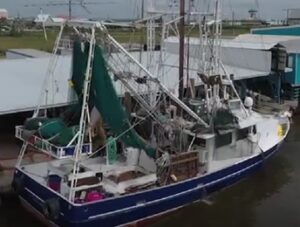 Consumers likely don’t think twice about where the shrimp or seafood bought at grocery store comes from, but Louisiana fisherman—and now federal lawmakers—are asking people to pay attention. “We’re losing an industry and a culture and a way of life in Louisiana and across the country,” said Acy Cooper, who comes from a long line of shrimpers. He says what was once a reliable profession has now become heartache. It’s not just a problem in Louisiana—which is why lawmakers from all four of the country’s coasts are joining together to find a solution. Video, >>click to read<< 10:28
Consumers likely don’t think twice about where the shrimp or seafood bought at grocery store comes from, but Louisiana fisherman—and now federal lawmakers—are asking people to pay attention. “We’re losing an industry and a culture and a way of life in Louisiana and across the country,” said Acy Cooper, who comes from a long line of shrimpers. He says what was once a reliable profession has now become heartache. It’s not just a problem in Louisiana—which is why lawmakers from all four of the country’s coasts are joining together to find a solution. Video, >>click to read<< 10:28
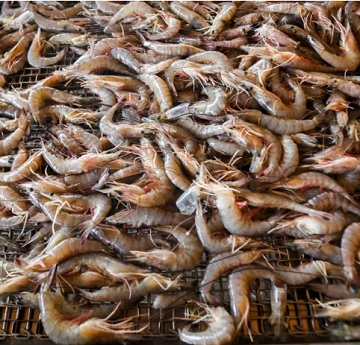
Letter: Pleas for help from Louisiana shrimpers fall on deaf ears
The Louisiana shrimp industry is in crisis; putting our 15,000 jobs and $1.3 billion industry at risk. During the legislative session, hundreds of shrimpers, dock owners and processors marched on the State Capitol to call out unwanted competition from imported shrimp. Louisiana plays a significant role in the U.S. shrimp market, accounting for 25% of the nation’s demand. But imports from Thailand, Vietnam, Indonesia and Ecuador are flooding U.S. markets, resulting in distressed prices for our product. >click to read< 08:06
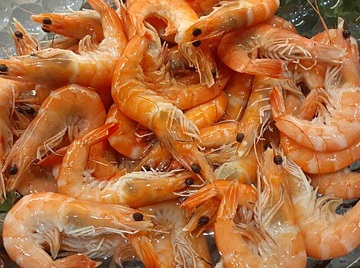
There have been 2,600 violations of Louisiana’s imported shrimp law — and no fines
Health inspectors have recorded more than 2,600 violations of a 2019 Louisiana law that requires restaurants and other food establishments to indicate on their menus if they’re selling imported shrimp or crawfish, but the state hasn’t levied a single fine for those violations since the law took effect. It’s a problem local fishermen have been calling attention to for years. Foreign seafood has become so cheap that it is almost ubiquitous. According to the Louisiana Shrimp Association, most restaurants in the state have chosen to serve imported shrimp and crawfish to patrons who are either oblivious to it or believe they’re eating local fare. >click to read< 10:49
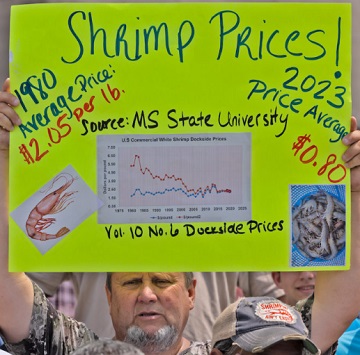
Louisiana shrimpers are worried imports will sink them for good
It’s the start of brown shrimp season in Louisiana, and instead of a fleet of boats heading out to trawl nearby waters, fishermen have gathered like an armada at the Louisiana State Capitol to tell lawmakers that the industry is in dire straits. Hundreds of longtime shrimpers tied up their boats and held a rally at the Capitol in recent weeks in a rare show of unity from all factions of the volatile shrimping industry. Shrimpers, dock owners, and processors have for decades pointed fingers at each other for driving prices down. But now, they’re all protesting against the unwanted competition affecting their livelihoods: imported shrimp. Photos, >click to read< 16:34
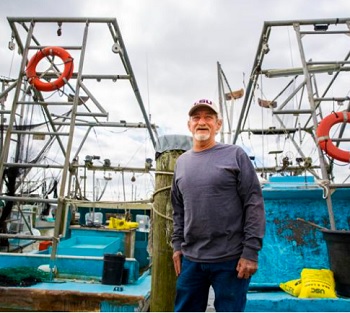
As seafood sales rise for Lent, Louisiana shrimpers say their industry is in trouble
With Lent elevating sales of crawfish, fish and shrimp across Louisiana, many local fishermen and shrimpers say they aren’t benefitting. “We’ve been here a long time, and yet we’re just going to get shoved out of the way. When importers come in and start buying cold storage and start buying infrastructure, we’re going to lose our way of life, and Louisiana is going to lose a lot. They’re more at stake than anybody because we’re known for our seafood. That’s why people come to Louisiana is for our seafood and for our culture,” said Acy Cooper, the president of the Louisiana Shrimpers Association. >click to read< 12:02
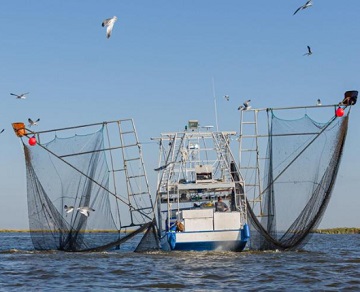
Covid shutdowns and hurricanes rock Louisiana seafood industry
During the pandemic, the state’s seafood industry shut down. Once business resumed, a series of storms and hurricanes wiped out areas where those who rely on the state’s plentiful harvests of crawfish, shrimp, crabs, oysters and alligators make a living. The double-whammy took a devastating toll on Louisiana, the nation’s second-largest seafood supplier, and when it fully recovers remains to be seen. “There’s still boats stranded in certain areas,” said Samantha Carroll, executive director for Louisiana Seafood. While the 2022 season offered a reprieve with no hurricanes, “people were still trying to pick up the pieces,” struggling to find fuel, bait, and other essentials, she said. >click to read< 14:52
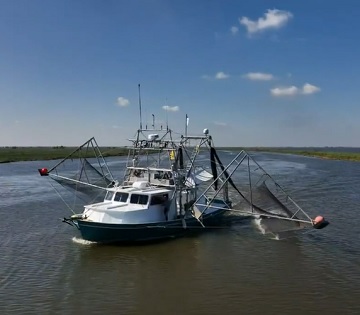
‘Without us, you don’t have Louisiana:’ Struggling shrimpers warn lawmakers industry is on brink of collapse
For longtime shrimp boat captain Kip Marquize, it’s a race against time. “We are the heart of Louisiana. Without us, you don’t have Louisiana,” Marquize said as he navigated the channels out of Delacroix and deep into the bayous of St. Bernard Parish. “What I see is our whole state losing its identity on the world stage.” The biggest challenge they face is the sheer mass of shrimp currently being imported by the United States. “The importers, they got so much coming in, they’re starting to buy infrastructure,” Cooper said. “They’re buying freezers. They’re trying to buy processing plants. When they do that, you’re pushing us completely out. “We’re about to lose this industry.” video, >click to read< 14:34

Fishermen fight back on imported shrimp
A big part of Louisiana is the shrimp industry, but the Louisiana Shrimp Taskforce worries they will not survive due to the overwhelming amount of imports. “We are Louisiana, I don’t care how you look at it. When you talk about Louisiana, there’s only a couple of things you talk about, and fishing is one of them. You don’t want to come to Louisiana and eat Indonesia shrimp, you want to eat Louisiana shrimp,” says Acy Cooper chairman of the Louisiana Shrimp Taskforce. Cooper says they have gotten the numbers, showing the United States imported billons of shrimp from foreign countries like Indonesia, Peru, Thailand and Vietnam. Video, >click to read< 11:44
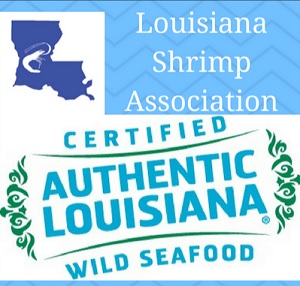
Louisiana Shrimpers want lobbyist to help voice their concerns in Washington
The Louisiana Shrimp Association is fighting back against imported shrimp and their goal is to save their livelihood. They want their voices to be heard in Washington D.C. and in Baton Rouge. President of the L.S.A., Acy Cooper, said they have had a lot of issues in the industry. “The prices went from four dollars a pound down to a dollar twenty. It is getting dyer need. We have been screaming and hollering. This task force has been together since two thousand and ten. We can’t get anybody in Washington to do the job that we need.” >click to read< 07:49
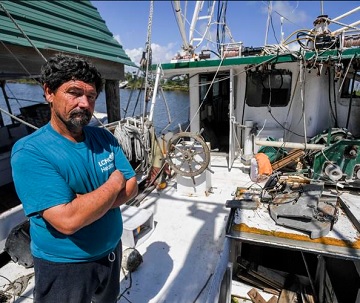
Fishing for Solutions: The race to protect coastal Louisiana’s cultures and way of life
The seafood and fishing industry provides tens of thousands of jobs to Louisiana, many of them via small family businesses in coastal communities. And while dealing with the impacts of climate change, local fishers and shrimpers also are contending with imported products driving down prices, fuel costs, fisheries allocations, regulatory constraints and an aging workforce. Local fishers in recent years have been grappling with skyrocketing insurance rates as well, making it harder to recover once the storm has passed. Photos, >click to read< 09:09
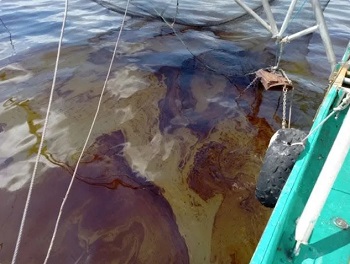
Oil spill in Terrebonne Bay on opening day of shrimp season causes grief for fishermen
A Terrebonne Bay oil spill on the first day of Louisiana’s inshore shrimp season has taken a toll on some local fishermen, who say they received no warning of the incident until many hours after it occurred and as a result ended up with fouled nets and oiled boats. The Coast Guard said it was notified through the National Response Center at 3:01 a.m. Monday that a tank platform collapsed at the Hilcorp Caillou Island facility in Terrebonne Bay. “I went out on the opening and I kept pushing all that night,” said Terrebonne Parish shrimper John Sophin. “I didn’t know about the spill, nobody warned me, I didn’t know where it was at.” >click to read< 08:54
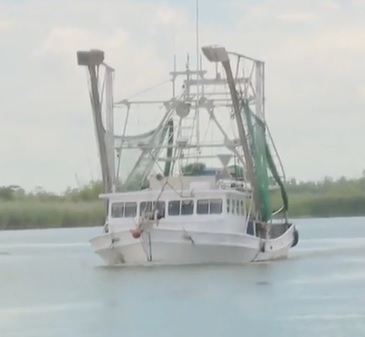
‘I don’t know where the breaking point is at’: A look at the threats the Louisiana seafood industry faces
Whether it’s crawfish, crabs, fish, shrimp or oysters, Louisiana is known for its seafood. The seafood industry is one of Louisiana’s largest employers. But the Louisiana seafood industry is threatened. “We are accountable for one-third of the seafood in this country. That’s something to be proud of,” said Mitch Jurisich, the chairman of the Louisiana Oyster Task Force and a third-generation oyster farmer. “But the industry, it seems like we’ve been under attack for several years now.” Those we talked to in the shrimp and oyster fishing business say there are problems gripping the seafood industry, including price, government projects and natural disasters. Let’s start with the price. Video, >click to read/watch< 21:44
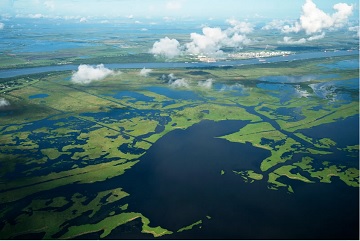
The Controversial Plan to Unleash the Mississippi River
“There’s not a son of a bitch in this parish, or within this industry, that doesn’t want coastal restoration,” Acy Cooper, the president of the Louisiana Shrimp Association tells me when I find him repairing his boat in Venice, the southernmost harbor on the Mississippi River. Cooper is a third-generation shrimper; he knows that if the marshland is not saved, that chain will come to an end. The necessary gradient of water will disappear, replaced by salty ocean. So Cooper supports some projects—using dredged mud to build marsh, for instance—but worries that the diversion will make the water near Venice too fresh, pushing shrimp out into the Gulf. The small boats used by many shrimpers can’t travel that far. He compares the diversion to a gun held to his head: “Either let me die slowly and I can adapt, or you just pull the trigger and kill me now. That’s the way I feel about it,” he says. “If you pull the trigger now, I’m dead.” The Army Corps’ draft environmental impact statement, released in spring 2021, confirmed many of Cooper’s worst fears,,, Big article, big read. >click to read< 19:22
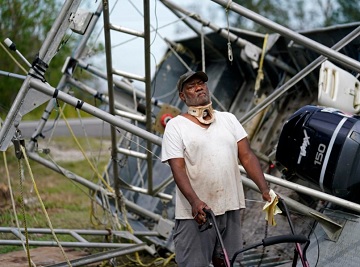
After Hurricane Ida: Louisiana’s struggling seafood industry is teetering
The Category 4 hurricane that struck Louisiana late last month fractured some parts of the industry even worse than 2005’s Katrina, which cost seafood businesses more than $1 billion. No one yet knows how many boats, docks and processors were lost because of Ida’s relentless, 150-mph winds. Vessels that made it to the safest harbors fared the best, yet even some of them were destroyed by the storm’s fury. Unable to speak for a decade since cancer surgery, Dale Williams gets by on disability payments of $1,300 a month. Living in a mobile home at Port Sulphur on the west bank of the Mississippi River, he supplements his income by catching shrimp with a little boat he parked in his front yard for Hurricane Ida. Ida’s Category 4 winds flipped Williams’ trawler on its side, bending the frame and tearing nets,,, The goal is to get back on the water by October, he said, either with the damaged boat or another one that fared better. >click to read< 10:44
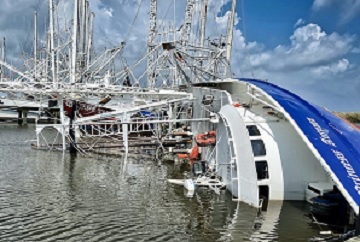
Hurricane Ida: A Bad Time on the Bayou
Hurricane Ida struck the heart of Louisiana’s seafood industry as a Category 4 hurricane, wiping out homes, boats, trucks, plants and icehouses…. ‘This is just a bad time to be on the bayou it seems,’ said Venice shrimper Acy Cooper, a member of the Louisiana Shrimp Task Force. ‘Before the storm we were being hit hard by Covid. Covid is still here, but now we have to face the difficulties brought on by Ida,’ he said, adding that he has been fortunate compared to those to the east of him. ‘Here in Venice, we lost three or four shrimp boats, but over in Chauvin and Dulac, it’s more like half that fleet. People have lost their homes, their boats. They don’t have power, gas or food. These are people that aren’t going to ask for anything, but let me tell you they need it, and they need it now.’ Click to read >Pt.1< and >Pt.2< 18:55
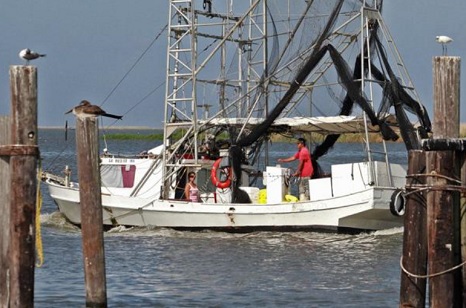
Acy Cooper: Don’t let the EPA hurt Gulf fishermen with offshore fish farming facilitys
I’ve been fishing and shrimping in the Gulf of Mexico since I was 15 years old–for over forty years now. As my father and grandfather would say, it’s in our family’s blood. For many of us here in Venice, Louisiana, fishing is not just a family tradition, it’s in the fabric of our community.,, Now the federal government could make it even harder for us. The Environmental Protection Agency is moving toward approving an offshore fish farming facility by Kampachi Farms in waters off Sarasota, Florida. This operation could hurt the ecosystem and economy in Florida and set a dangerous precedent for development across the Gulf. As the only project of its kind in federal waters, it would pave the way for more industrial-scale aquaculture. >click to read< 22:07
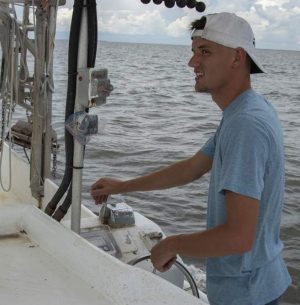
‘Dead zone’ worsens troubles for Louisiana shrimpers
Tommy Olander Jr. took his first baby steps on the deck of a 42-by-16-foot Lafitte skiff shrimp trawler. His dad, Thomas Olander, named the boat Tommy Boy after his son, now 25.
“I’d rather be broke and shrimping than get out of it,”,, But Olander did leave the business,,, The Louisiana shrimp industry is facing major economic and environmental challenges including low prices for shrimp, natural disasters, laws to protect endangered turtles and a Delaware-size dead zone with too little oxygen for aquatic life. “The main focus has been about prices,” said Acy Cooper, 58, president of the Louisiana Shrimp Association. “But there’s also (turtle excluder devices), the dead zone and freshwater diversion.” >click to read<10:09
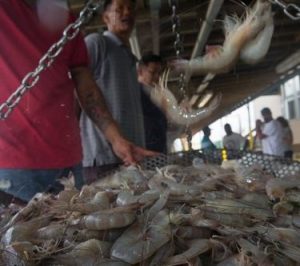
Louisiana shrimpers avert strike but their catch hits all-time low
Louisiana shrimpers are getting a little more money for their catch – but a lot less of a catch. The summer has been a roller coaster for the state’s shrimp industry. Last month, shrimpers threatened to strike if prices continued their steep decline, reaching levels early this year that hadn’t been seen since the 1980s. But a slight uptick – about a nickel more per pound of shrimp – placated many shrimpers. “It pacified them from doing anything,” Acy Cooper, a Venice shrimper and president of the Louisiana Shrimp Association, said Thursday (Sept. 6). “They’re kind of good with it, but not good with it, if you know what I mean.” >click to read<12:49
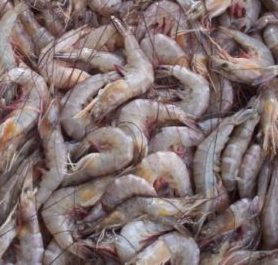
Will La.’s shrimpers strike? ‘It’s a last resort’
Acy Cooper bought his first shrimping vessel, an old wooden flatboat, when he was 15. Cooper followed his father and grandfather before him into the rich gumbo Gulf of Mexico waters from the fishing community of Venice on the coast of southern Louisiana. Today Cooper and his two sons and son-in-law operate two Laffite skiffs — one 35-footer and one 30-footer — docked in the same community for another generation. But although many American business owners are bracing for potential negative impacts of a trade war triggered by President Donald Trump’s tariffs, Cooper and his fellow shrimpers are pleading for such protections as foreign producers dump shrimp in the U.S. and cratering prices in the process. >click to read<18:51

Louisiana shrimpers consider strike as prices plummet
Louisiana shrimpers vowed this week to go on strike if shrimp prices take yet another tumble. About 200 shrimpers gathered in Houma on Wednesday (Aug. 8) to vent their frustrations about foreign imports that have driven shrimp prices to levels not seen since the 1980s. They also fumed over a lack of political support for tariffs and other measures that could shore up an industry they say is heading toward extinction. “We can’t make it on cents. We need dollars,” said Dean Blanchard, a Grand Isle shrimp distributor. “There’s no way this can continue.” >click to read<21:59

Louisiana Shrimpers seek more federal protection
Speaking during the Louisiana Shrimp Association meeting at the American Legion Hall in Houma, shrimpers said import tariffs aren’t enough to protect their business. And foreign companies should not be able to sell shrimp in the U.S. if they are using banned antibiotics. “We’re being treated differently than other businesses that are in the same situation we’re in,” said Dean Blanchard, owner of Dean Blanchard Seafood Inc. in Grand Isle. “We’re comparable to rice farmers and sugar-cane farmers.” When these farmers, many of them in Louisiana, couldn’t compete with imports, they received help, Blanchard said. The federal government provides them subsidies. He added that they would be out of business if they had to work as hard as shrimpers. >click to read<12:30
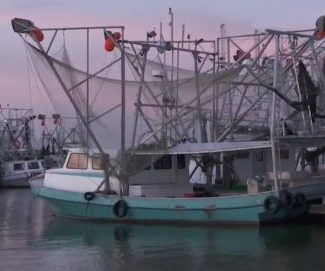
Threatened Catch
It’s the Sunday after Thanksgiving. And in case you’re tired of turkey, we have a helping of shrimp and a few questions. You may not think much about how the seafood gets to your plate.But the question of who’s catching it and where is at the center of a global controversy. To understand why, we head south to the Louisiana bayou. It’s where an industry that survived Hurricane Katrina and the BP oil spill is finding itself threatened with extinction by foreign competition. These fishermen could be Shrimpers Lost… and theirs could be a lesson for us all. Today we’re going shrimping in Venice, Louisiana. Acy Cooper is our guide. Sharyl Attkisson: How important is the shrimping business to your personally? Acy Cooper: It’s everything to me. You know, my family does it. My dad’s 80 years old, he still fishes. And my two boys has entered the business, and my daughter she married a fisherman. Louisiana’s shrimp industry has been a family affair for more than a century. Video, read the rest here 16:04






